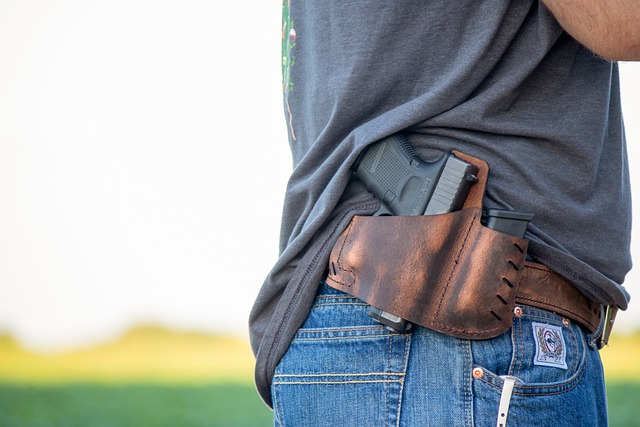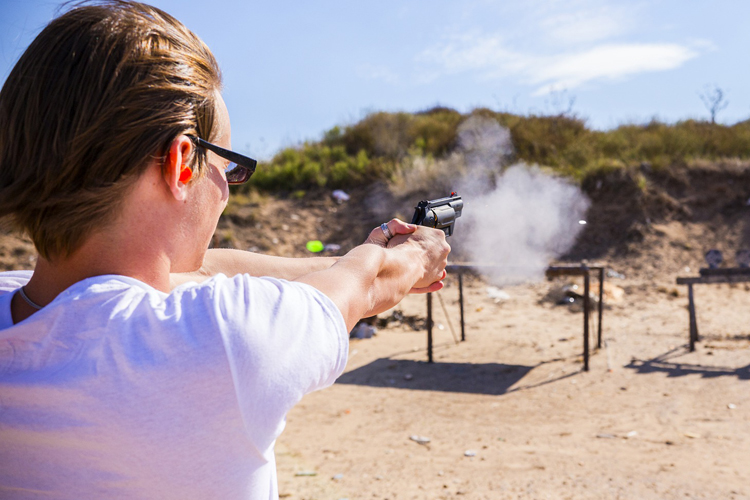Choosing the best pistol is a crucial choice when it comes to personal protection and self-defense. It’s simple to feel disoriented and uncertain with the vast variety of products on the market.
This thorough guide seeks to demystify the procedure and arm you with the information required to choose a handgun for self-defense in a knowledgeable manner.
Understanding Your Needs:
Establishing your individual wants and priorities is essential before delving into the technical aspects of handguns. Think about the following elements:
- Purpose of Use: Are you looking for a handgun primarily for home defense, for concealed carry, or for both?
- Experience Level: The type of handgun you should think about will depend on your level of firearm experience. Beginners may choose simpler models, whilst seasoned shooters may favor more sophisticated choices.
- Comfort and Fit: A snug, ergonomic grasp is necessary. Visit nearby gun shops to try out various models and choose one that feels comfortable in your hands.
- Ammunition Compatibility: It’s critical that your chosen pistol be ammunition compatible. For self-defense, popular calibers including 9mm, .40 S&W, and .45 ACP are frequently advised.
What is Home Defense Gun?
The two most important considerations when choosing a gun to defend your home are your comfort level and the weapon’s tactical advantages in light of your home’s design.
For home defense, handguns and shotguns work well in general.
Tactical shotguns for home defense are simple to operate and offer a potent method of self-defense. They are excellent for protecting your home from burglars or other threats because they are adaptable enough to be used for a variety of shots, from short range to long distance.

Handgun Types:
There are several handgun types, each with its own advantages and considerations:
Semi-automatic Pistols:
These pistols have a larger magazine capacity and faster reload times. They are a well-liked option for self-defense because of their dependability and adaptability.
Although some types are single-action capable, most handguns are double-action weapons by default. Some semi-automatic handguns have fully steel frames, however many more recent models have lighter polymer frames. The frame composition also varies.
Modern pistols often come in 9mm, .40 Smith & Wesson, or.45 ACP calibers and can hold up to 17 rounds. There are various variants that hold more or less, although the capacity does vary depending on magazine size and caliber. Whatever the case, the vast majority of pistols can contain more rounds than revolvers.
Revolvers:
Revolvers are renowned for being straightforward and dependable. They are a great option for new shooters or people who want a low-maintenance weapon.
Modern revolvers are heavier than older models because their frames are made of steel or aluminum. A revolver will typically weigh more than the typical semi-automatic, which can make it harder to control, but the weight can help dampen recoil.
A home-defense revolver will often have a caliber of either.38 Special or.357 Magnum, the latter of which may fire either caliber bullet.
Five to seven bullets can fit inside a revolver cylinder, however the majority only hold six. Although this may seem like a small number of shots to some, your accuracy will be more important than the number of rounds.
Caliber Considerations:
The diameter of the bullet that a handgun fires is referred to as its caliber. Although there are many discussions about the usefulness of particular calibers, your ability to shoot correctly under pressure is what matters most. The following common self-defense calibers:
- 9mm: Widely chosen for its manageable recoil, ample magazine capacity, and effective stopping power.
- .40 S&W: Offers a balance between the 9mm and .45 ACP, providing good stopping power with manageable recoil.
- .45 ACP: Known for its larger and slower bullets, it’s favored by those who prioritize stopping power over magazine capacity.
- Price range: Not everyone can afford to spend a lot of money on a pistol. Fortunately, cost doesn’t always equal quality.
The mid-to-low price range has some of the most dependable solutions. In the end, you want to choose an option that is trustworthy and reasonable. In an emergency, you don’t want it to jam, but you also don’t need to spend more than $1,000.

Size and Concealment:
If concealed carry is a priority, the size of your handgun matters:
- Full-Size: Although more difficult to conceal, it has more accuracy and capacity.
- Compact: Strikes a balance between usage and concealment, making it a popular option for both concealed carry and home defense.
- Subcompact: Perfect for deep concealment, although their small size may make shooting them accurately more difficult.
Action Types:
Handguns come in various action types, each with its own advantages:
- Single Action: Requires manually cocking the hammer before firing. Often seen in 1911-style pistols.
- Double Action: Trigger pull both cocks and releases the hammer. Offers a longer and heavier trigger pull, reducing the likelihood of accidental discharges.
- Striker-Fired: A type of double action with a consistent trigger pull. Common in many modern semi-automatic pistols.
Safety Features:
Safety should always be a top priority. Look for handguns with features like:
- Manual Safety: A physical switch that prevents the trigger from being pulled when engaged.
- Striker/Trigger Safety: A mechanism that blocks the trigger unless a specific action is taken, preventing accidental discharges.
- Loaded Chamber Indicator: A visual or tactile indication that a round is chambered.
Aftermarket Accessories:
Customizing your handgun can improve its performance and usability. Popular accessories include:
- Night Sights: Enhanced sights that are visible in low-light conditions.
- Grip Enhancements: Textured grips or grip sleeves can improve control and comfort.
Holsters: A good holster is essential for safe and comfortable concealed carry.
Legal Considerations:
It is crucial to comprehend the local laws and rules governing the possession of firearms, carry licenses, and the use of lethal force. Always follow the law, and if necessary, get legal counsel.
Training and Practice:
Owning a handgun for self-defense necessitates ongoing instruction and drills. To increase your confidence and skill, think about taking training in firearm safety and self-defense.
Budget:
The cost of budget handguns varies greatly. Establish a spending limit that covers the cost of the handgun as well as ammo, gear, and training.
Research and Reviews:
Read reviews of several pistol models from reliable sources before making a purchase. User reviews can offer insightful information on the dependability and performance of a pistol.
What is the easiest pistol to use?
Best First Handguns for Beginners:
- Sig Sauer P320.
- Kahr CW9.
- Smith & Wesson M&P 2.0 9mm.
- Mossberg MC1sc.
- Heckler and Koch VP9.
- Smith and Wesson 686+
- BERETTA PX4 STORM
- RUGER LCR9
Key Takeaways:
Your individual needs, interests, and situation must all be carefully taken into account when selecting the best handgun for self-defense.
If you are willing to buy a handgun, https://virginiacitizensarmory.com/category/ar15/lower-receiver/stripped-lowers/ is best choice for buying a handgun and its kinds, calibers, sizes, actions, safety features, and legal issues that can help you make an informed decision that will enable you to properly defend your loved ones and yourself. Keep in mind that possessing a handgun is a commitment to always priorities safety and to priorities training and practice.




